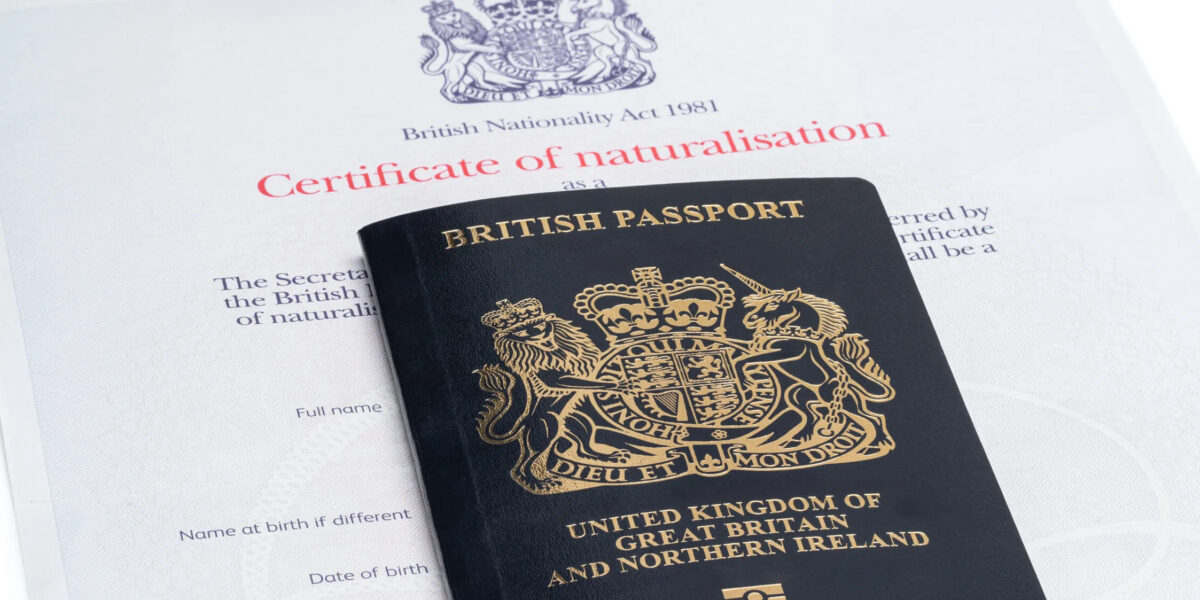The Nationality and Borders Act was passed on the 28th of April 2022. The act introduces a two-tier system that reduces the material support available for refugees who arrive via irregular (non-official) means, punishing them for using routes deemed as unsafe, such as sea routes to countries. Over the last decade asylum seekers unable to escape through official routes have increasingly sought alternative means to escape conflicts and persecution.
The inadequate provision of legal routes to escape persecution penalises refugees deemed to be coming from countries considered politically undesirable. The new law criminalises non-state sanctioned points of entry. The Act also makes provisions for the external processing of asylum claims in Rwanda. Refugees who are granted asylum will then be encouraged to remain in Rwanda for five years. However, the standard of accommodation and the fate of those who are not granted asylum is unclear. This practice amounts to neo-refoulment, where refugees who are denied entry to their primary destination are sent to a third state, where their rights are not secure. Refoulment is defined as returning asylum seekers to their country of origin when their lives or liberties are under threat from racial, religious, or political persecution. Refoulment is prohibited under Article 33 (1) of the 1951 Refugee Convention and therefore in breach of international law. This applies to all 149 signatory states, including the UK.
This inhumane overhaul of the British asylum system was only made possible by the securitisation of asylum seekers within political, societal and media discourse.
The first seventeen victims of the new act are scheduled for deportation on the 14th of June. These individuals, who are from Syria, Egypt and Sudan, are currently being held in a detention facility. The detained refugees who decided to protest with a hunger strike were threatened with an earlier deportation date.
Securitisation of Asylum
The securitisation of asylum refers to refugees (mostly non-white) being framed as a potential threat and danger to the host country. The broad interpretation of security allows any object such as human safety, national identity, or economic prosperity to be considered an existential threat. The process of securitisation occurs via imagery in the media, verbal assertions from political elites, or securitising practices that criminalise certain forms of migration. In the post-9/11 era, Western society perceives individual and national security as threatened by irregular migration. The political elites often capitalise upon these anxieties to gain an electoral advantage. Associating migration with insecurity raises migration beyond the confines of ordinary politics, rendering it an issue of national security and thus justifying extreme measures in the name of defence. This results in xenophobia and notions of ethnonational protectionism becoming more prolific within the wider migration debate.
Within the context of the Nationality and Borders Act, the securitising discourse was present during the Home Secretary’s July 2021 opening speech, as evident in her following statements:
“Enough of foreign criminals – including murderers and rapists – who abuse our laws and then game the system so we can’t remove them.”
“Enough of economic migrants pretending to be genuine refugees.”
Referring to refugees as “criminals” and “murderers” makes them synonymous with insecurity. Furthermore, their reasons for seeking refuge were delegitimised when describing them as economic migrants. Such protectionist, some would say racist, language was abundant during the Vote Leave Brexit campaign. This narrative remains mainstream due to the continued securitised political and media discourse surrounding refugees. By invoking security, the Home Secretary justified the adoption of an inhumane law that criminalises and externalises refugees based on their point of entry. Curiously, the same attitude is absent when referring to Ukrainian refugees, who are unaffected by the new law due to their state-approved point of entry.
Externalisation policies as a form of neo-refoulment
Externalisation is the practice of transferring the receiving country’s responsibility of protection to a third state, this can apply to both asylum processing and long-term accommodation. Therefore, refugees can be prevented from reaching a particular state and by extension, denied the adequate standards of protection mandated under international law. The containment of refugees in a third state may further reduce their access to health, education and free movement as well as subject them to human rights violations. If these violations occur, the outsourcing country would be in breach of international laws on refoulement. Externalisation can also lead to indirect refoulment from the third country. Therefore, this amounts to a form of neo-refoulment in which political objectives supersede humanitarian and legal obligations. Sharing international responsibility for refugees is central to maintaining a coherent global protection regime. However, outsourcing asylum management to low-income states does not equate to sharing responsibility since low-income states already host 85% of global refugees.
The securitisation of asylum has justified the externalisation policies adopted by the EU, Australia and the UK. The EU created a migrant containment zone along its borders,’ whereby Turkey has been paid to prevent passage of Syrian refugees to the EU and Libya provides containment and surveillance to thwart migrants from crossings across the Mediterranean. Turkey has now also now created a zone within Northern Syria where it has been returning refugees and may also constitute refoulement.
However, the new British law is more reminiscent of the previous Australian externalisation policy, where migrants were held in detention centres in Nauru or Papua New Guinea. The Nationality and Borders Act permits the offshoring of refugees to Rwanda due to security concerns that are claimed to emanate from refugees. This highlights the increasing prevalence of externalisation policies in the Global North.
The same refugees who are considered a security threat to the UK are not considered a security problem for Rwanda. This reaffirms that the threat posed by asylum seekers is not objective, but a discursive construct where notions of security are intertwined with racial, religious and cultural stereotypes. These stereotypes are underpinned by the media depicting the Global South as a region of injustice and chaos that threatens liberal democracies. Asylum seekers labelled as “criminals” and “rapists” in the UK are thus seen as analogous to the Global South and consequently, not a threat to Rwanda. This distorted view of both the Global South and non-European asylum seekers enables further societal endorsement of externalisation policies.
The externalisation policy enacted by the UK contradicts the key principles of the 1951 Refugee Convention. It not only constitutes neo-refoulment but also amounts to a pushback, akin to physical measures preventing entry. These actions can also be characterised as collective punishment and thus a violation of human rights. If the UK seeks to maintain its commitment to a rules-based international order, it must actively fulfil its humanitarian responsibilities before criticising others.
Human rights in Rwanda
The human rights record of post-genocide Rwanda implies that it is not a safe destination for the externalisation of refugees. This was demonstrated in 2018 when police executed twelve refugees from the Democratic Republic of Congo (DRC) following a protest outside the UNHCR offices. Police also arrested sixty refugees the same year, charged with participating in unlawful protests. These conditions may deteriorate further as the DRC is currently experiencing attacks and political unrest, leading to more refugees fleeing to Rwanda. If refugees seeking shelter from human rights violations are sent to Rwanda, their objective of seeking asylum from persecution is undermined because their safety cannot be guaranteed.
Rwandan nationals contend with the same state-sanctioned brutality and inhumane detentions. This applies to those who voice opposition against the government, such as the group of eight bloggers and journalists who were detained in 2021 for their political comments. The detention conditions of Rwanda have been cited as inhumane, particularly in the Gikondo prison where detainees are held without charge and subject to physical abuse. If the refugees offshored to Rwanda from the UK decide to protest unjust treatment, they could encounter the same fate.
The human rights issues and poor access to services in Rwanda may pressure refugees to seek security elsewhere, therefore, facilitating the same human trafficking that the Nationality and Borders Act seeks to undermine. Despite these concerns and the initial £120 million cost of offshoring asylum processing and accommodation to Rwanda, the UK considers this a suitable third state for externalisation. The perception of asylum being a security issue rather than an issue of human rights needs changing to avoid a further drift toward externalisation policies.
De-securitisation
Whilst framing asylum seekers as a threat to national and personal security results in securitisation, these narratives need to be countered by civil society groups. Countering securitised political and media discourse is also central to de-securitisation. Politicians and journalists who recognise the inhumane nature of the Nationality and Borders Act should avoid referring to criminality and cultural differences when discussing asylum. They must discuss asylum in a way that emphasises human rights and social inclusion. This would contribute to the de-securitisation of asylum by reframing it as a human rights issue, as opposed to a security concern.
Reorienting the migration debate away from security and towards human rights and settlement and integration policies, is vital to delegitimising externalisation policies. It is also important that refugees are not viewed in a racist manner. As we have recently seen with the Ukrainian refugee crisis, the framing and perception of refugees is central to how they will eventually be treated by countries. A better and more humane way of treating all refugees must be found. If that does not happen, then we will witness further erosion of the rights guaranteed to refugees under international conventions.
Hamza Choudhary is a Research Associate at the Ayaan Institute.



Leave a Reply